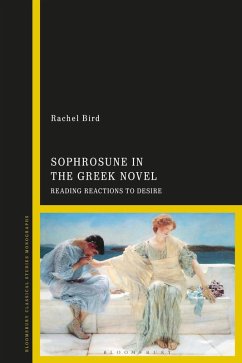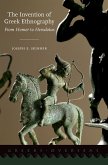This book offers the first comprehensive evaluation of ethics in the ancient Greek novel, demonstrating how their representation of the cardinal virtue sophrosune positions these texts in their literary, philosophical and cultural contexts. Sophrosune encompasses the dispositions and psychological states of temperance, self-control, chastity, sanity and moderation. The Greek novels are the first examples of lengthy prose fiction in the Greek world, composed between the first century BCE and the fourth century CE. Each novel is concerned with a pair of beautiful, aristocratic lovers who undergo trials and tribulations, before a successful resolution is reached.
Bird focuses on the extant examples of the genre (Chariton's Callirhoe, Xenophon of Ephesus' Ephesiaca, Longus' Daphnis and Chloe, Achilles Tatius' Leucippe and Clitophon and Heliodorus' Aethiopica), which all have the virtue of sophrosune at their heart. As each pair of lovers strives to retain their chastity in the face of adversity, and under extreme pressure from eros, it is essential to understand how this virtue is represented in the characters within each novel. Invited modes of reading also involve sophrosune, and the author provides an important exploration of how sophrosune in the reader is both encouraged and undermined by these works of fiction.
Hinweis: Dieser Artikel kann nur an eine deutsche Lieferadresse ausgeliefert werden.
Bird focuses on the extant examples of the genre (Chariton's Callirhoe, Xenophon of Ephesus' Ephesiaca, Longus' Daphnis and Chloe, Achilles Tatius' Leucippe and Clitophon and Heliodorus' Aethiopica), which all have the virtue of sophrosune at their heart. As each pair of lovers strives to retain their chastity in the face of adversity, and under extreme pressure from eros, it is essential to understand how this virtue is represented in the characters within each novel. Invited modes of reading also involve sophrosune, and the author provides an important exploration of how sophrosune in the reader is both encouraged and undermined by these works of fiction.
Hinweis: Dieser Artikel kann nur an eine deutsche Lieferadresse ausgeliefert werden.









